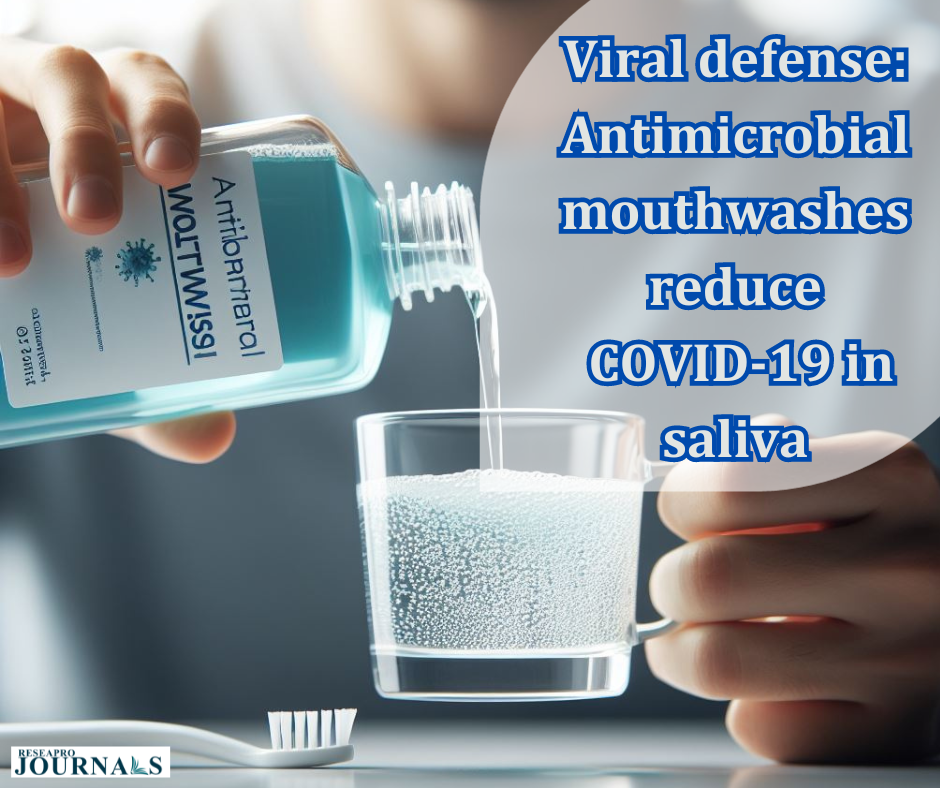In the investigation of the effectiveness of antimicrobial mouthwashes in mitigating the viral load in the saliva of COVID-19 patients, the focus is on exploring potential interventions for reducing the spread of the virus.
Mechanism of Action:
Antimicrobial mouthwashes typically contain agents like chlorhexidine or cetylpyridinium chloride, known for their antimicrobial properties. These agents have the potential to disrupt the viral envelope or inhibit viral replication, which could, in theory, lead to a reduction in the viral load in saliva.
Clinical Assessment:
The study involves observing COVID-19 patients who incorporate antimicrobial mouthwashes into their regular oral hygiene routine. Regular usage is hypothesized to contribute to a decrease in the amount of virus present in the oral cavity, providing a complementary approach to established preventive practices.
Supplementary Preventive Measure:
Antimicrobial mouthwashes could serve as an additional layer of defense, complementing existing preventive measures such as mask-wearing and vaccination. This investigation aims to determine the practical impact of incorporating mouthwashes into the arsenal of preventive strategies against COVID-19.
While the study offers promising insights into the potential effectiveness of antimicrobial mouthwashes in reducing the viral load in COVID-19 patients’ saliva, further research is essential.It is imperative to approach these findings with a comprehensive perspective, ensuring that any additional preventive measures align with established guidelines for effective COVID-19 management.




